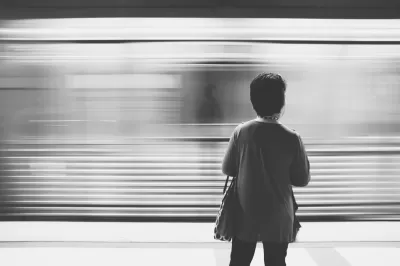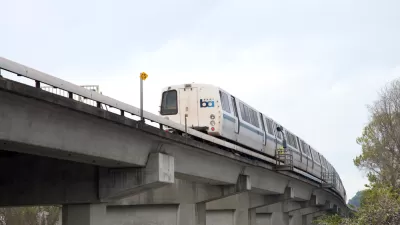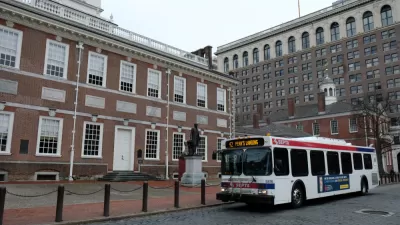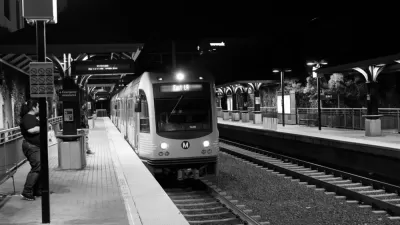According to an LADOT study, the city's women face disproportionate barriers in accessing safe, efficient transportation.

A study from the Los Angeles Department of Transportation "reaffirms what many already experience: navigating Los Angeles is often more complex, dangerous and inaccessible for women," reports Ryan Fonseca. According to the study, "women continue to face sharp disparities stemming from their socio-economic status in society. Women continue to be responsible for larger shares of household and care-related duties and are overwhelmingly the victims of harassment and sexual assault compared to men."
"The report outlines a variety of transportation-related barriers faced by women in the neighborhoods that were studied, including safety concerns, lack of trips for recreation and distance from key destinations." These challenges include "a lower rate of access to driver’s licenses, smartphones and computers," safety concerns, and more responsibilities for dependents such as children and elders.
The study's authors recommend improved, more representative data collection processes, "inclusive infrastructure," enhanced transit service, and "expanded access to cars in underinvested communities."
In communities lacking reliable public transportation, cars are an essential means of accessing economic opportunities and critical destinations like schools, health clinics, day cares, and grocery stores. Equitable approaches to increasing car access should improve access to driving among those who most stand to benefit, while managing the driving of the heaviest polluters.
The report highlights the need to center equity in future transportation planning efforts and "prioritize resources in low-income communities of color, which have been subject to generations of disinvestment."
FULL STORY: LA’s Transportation System Is ‘Failing Women’

Planetizen Federal Action Tracker
A weekly monitor of how Trump’s orders and actions are impacting planners and planning in America.

Maui's Vacation Rental Debate Turns Ugly
Verbal attacks, misinformation campaigns and fistfights plague a high-stakes debate to convert thousands of vacation rentals into long-term housing.

San Francisco Suspends Traffic Calming Amidst Record Deaths
Citing “a challenging fiscal landscape,” the city will cease the program on the heels of 42 traffic deaths, including 24 pedestrians.

Amtrak Rolls Out New Orleans to Alabama “Mardi Gras” Train
The new service will operate morning and evening departures between Mobile and New Orleans.

The Subversive Car-Free Guide to Trump's Great American Road Trip
Car-free ways to access Chicagoland’s best tourist attractions.

San Antonio and Austin are Fusing Into one Massive Megaregion
The region spanning the two central Texas cities is growing fast, posing challenges for local infrastructure and water supplies.
Urban Design for Planners 1: Software Tools
This six-course series explores essential urban design concepts using open source software and equips planners with the tools they need to participate fully in the urban design process.
Planning for Universal Design
Learn the tools for implementing Universal Design in planning regulations.
Heyer Gruel & Associates PA
JM Goldson LLC
Custer County Colorado
City of Camden Redevelopment Agency
City of Astoria
Transportation Research & Education Center (TREC) at Portland State University
Jefferson Parish Government
Camden Redevelopment Agency
City of Claremont





























